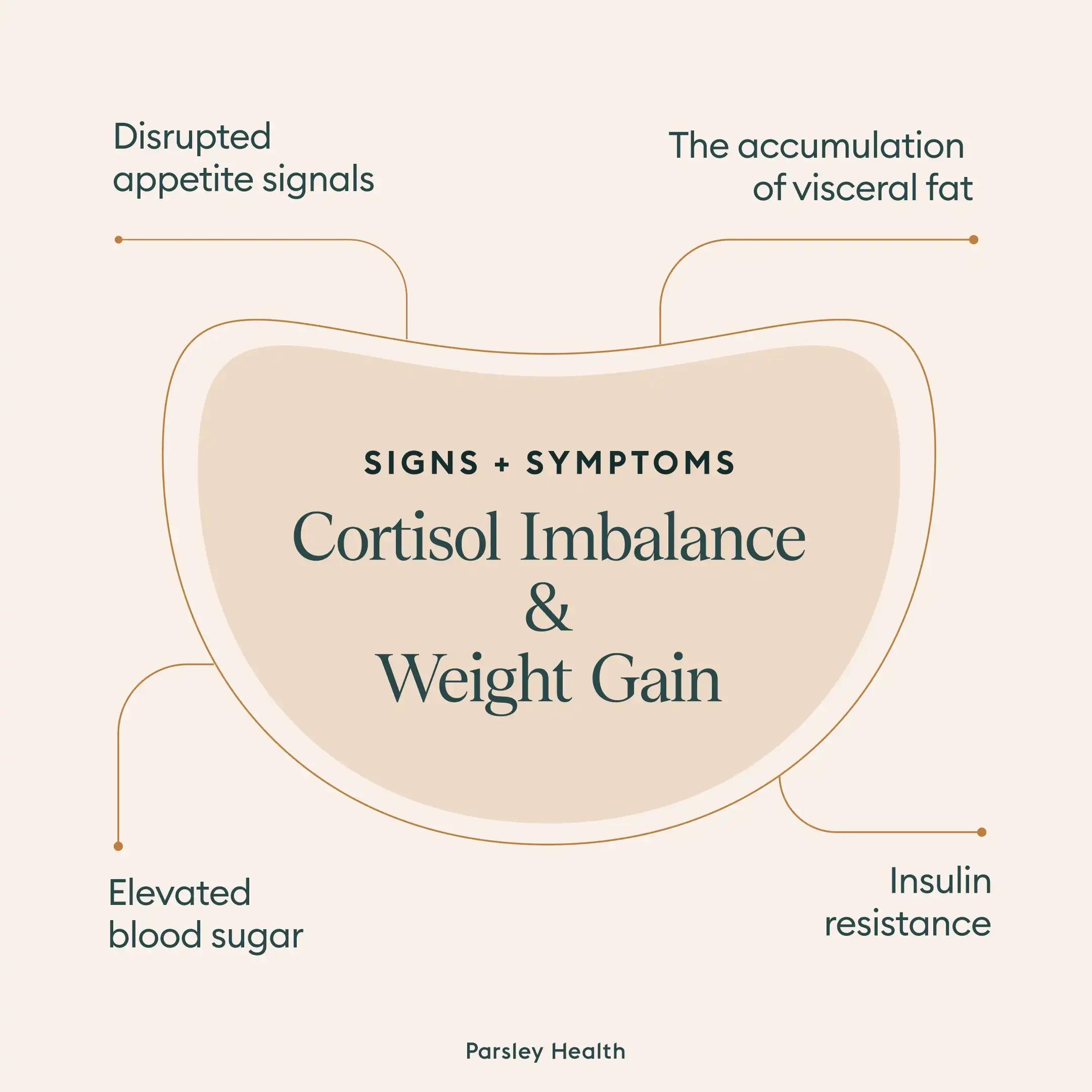The phrase “cortisol belly” isn’t a medical term. However, people sometimes use it to describe weight gain around the midsection. This is because cortisol, a steroid hormone, can lead to fat accumulation, often in the belly area.

We all need (adipose tissue) fat in our bodies to protect our organs, support hormones and cellular function, and more. However, too much cortisol can lead to visceral fat storage, which is associated with numerous chronic conditions. Keeping your cortisol level in check can help reduce your risk, improve your energy levels, and more.
Several factors can lead to high cortisol, and we’ll unpack them in this article. Since cortisol is associated with stress and is often called the “stress hormone,” people often think it is a bad thing. However, cortisol is crucial for the body. But a chronically high level, or dysregulated cortisol, is not good for us.
Here we’ll look at what cortisol is, what causes dysregulation and the related concerns, how to keep your cortisol level under control, and when to see a clinician for personalized care.
Understanding cortisol and its effects
Cortisol plays important roles in nearly all parts of your body. Your adrenal glands produce and release cortisol, which is a glucocorticoid. Glucocorticoids are steroid hormones.
“Cortisol is popularly known as the ‘stress hormone’ because it is released in the body to respond to stress,” says Catherine Gervacio, a registered nutritionist dietitian, certified exercise nutrition coach, and dietary consultant for WOWMD, a supplement brand. “It is important in our bodies because cortisol is needed for regulating metabolism, reducing inflammation, controlling blood sugar levels, and supporting the body’s fight-or-flight response.”
Cortisol also helps with your sleep-wake cycle. Your cortisol level typically peaks in the morning to get you up and going. Cortisol generally decreases throughout the day until you have your lowest levels at night around bedtime. You may have some fluctuations during the daytime, however. If your cortisol levels significantly deviate from the pattern of generally decreasing over the course of your day, you may have dysregulation.








